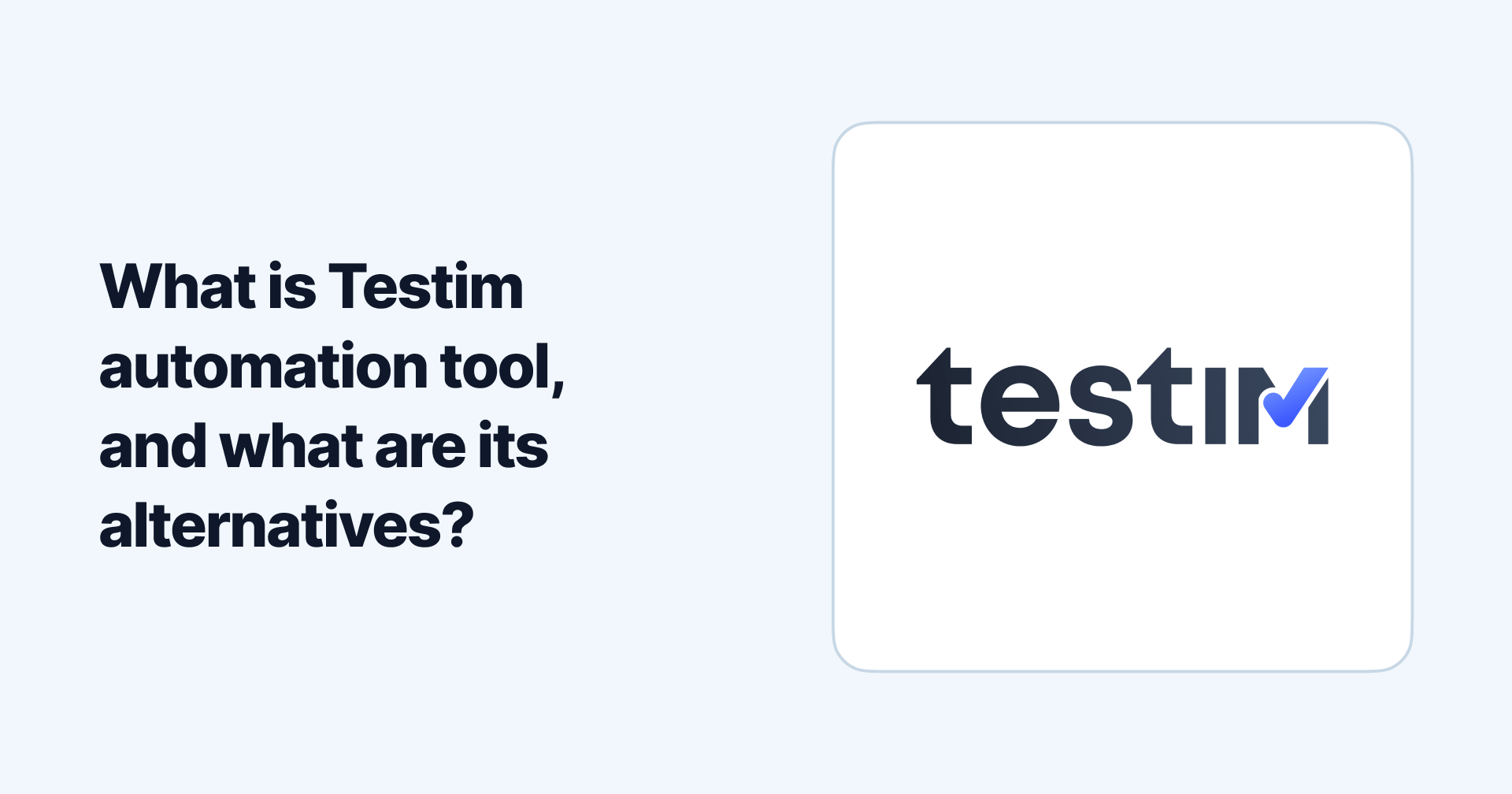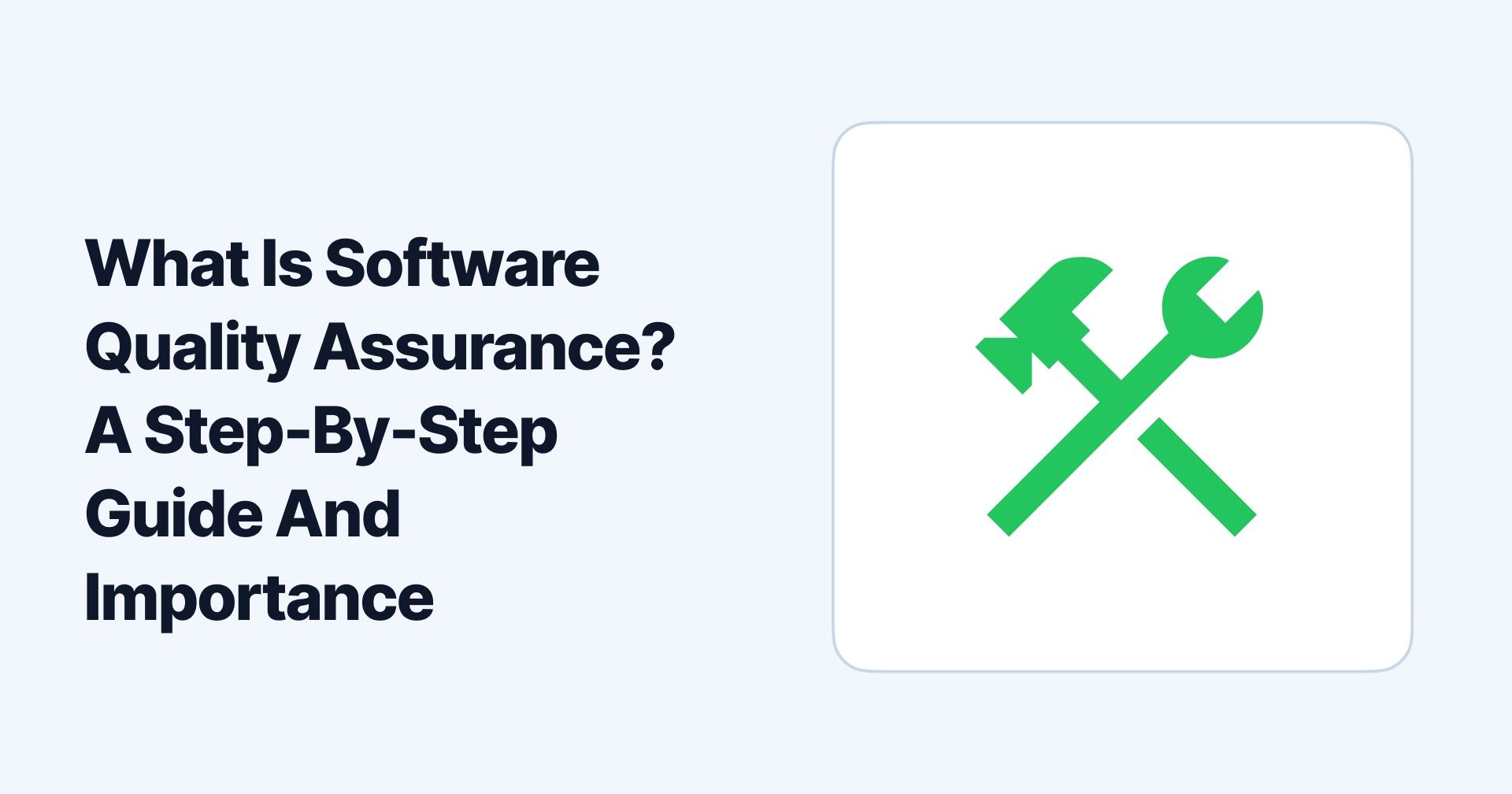Are you looking for an automated software testing tool that can make test writing and maintenance easier?
Testim is a popular choice among many teams because of its record-and-playback feature and AI-based “Smart Locators” that make tests less susceptible to minor changes in the underlying code.
However, Testim may not be the best fit for everyone, especially those looking to scale their testing efforts. In this blog post, we will explore what Testim is and its alternatives. We will also introduce one of the finest Testim alternatives and more.
Whether you're looking for a codeless UI testing tool or a more robust solution, we've got you covered.
What is Testim?

Testim automation tool is an automation testing tool that helps software development teams create and execute automated tests for web applications. It is designed to simplify creating and maintaining test automation using a cordless or code-friendly approach.
Testim aims to streamline the test automation process, allowing teams to create and maintain reliable automated tests for their web applications.
Testim automation tool applies to many use cases in web application testing. Whether it's validating user interactions, performing regression testing, or checking cross-browser compatibility, Testim provides the capabilities to automate these tasks efficiently.
It is handy for agile development teams aiming to accelerate their testing efforts and maintain a high level of quality with shorter release cycles.
Testim's ability to handle complex scenarios and its flexibility and collaboration features make it a valuable asset for organizations of all sizes.
Its user-friendly interface, support for code-based customization, comprehensive test execution, and adaptive maintenance capabilities make it a valuable asset for modern development teams.
By integrating Testim into their testing practices, organizations can enhance the efficiency and reliability of their software delivery, ultimately leading to improved user experiences and increased customer satisfaction.
Testim is specifically designed to assist agile teams in scaling and managing their automation projects efficiently.
Features of the Testim automation tool
Here are the key features of the Testim automation platform;
Test Creation: Testim provides a visual editor that allows users to create automated tests using a simple point-and-click interface. It also supports writing tests using JavaScript, enabling more advanced customization and logic.
Test Execution: Once the tests are created, Testim allows you to execute them on various browsers and platforms, including desktop and mobile devices. It supports parallel test execution to save time and improve efficiency.
Test Maintenance: Testim offers features to help maintain automated tests over time. It provides self-healing capabilities, which means that if there are changes in the application in the test, Testim can automatically update the test steps to adapt to those changes.
Collaboration and Reporting: Testim provides collaboration features that enable team members to work together on test automation. It also offers reporting and analytics to track test results, identify issues, and generate meaningful insights.
Integrations: Testim integrates with popular development and CI/CD tools such as Jenkins, Jira, GitHub, and Slack. It allows you to incorporate test automation into your existing development workflow seamlessly.
Pros & Cons of Testim automation tool
With many benefits and pros, Testim also has some cons associated with it. I have mentioned the pros and cons of Testim below.
Pros:
Testim provides excellent support and detailed documentation. Also, the reports generated on Testim are beneficial and can be implemented into your workflow.
Testim is reliable and stable. It enables the users to achieve an excellent outcome quickly. It is very convenient to build a scalable project on Testim.
Testim is a robust platform enabling users to maintain and establish automation using coded and non-coded techniques.
Testim also allows low code authoring with added flexibility to add custom JavaScript to fit any situation.
The TestOps feature of the Testim automation tool enables the teams to prioritize work to keep releases on track.
Cons:
Upon the failure of a test, Testim only provides email alerts once the suite passes again.
Testim must catch up on two major features; integration with Azure DevOps at the test case level and copy tests between projects.
Testim misses the ability to undo any actions on test steps.
The accessibility reporting feature of Testim is not agile at the script level, and the users have to go down to the step level.
Testim lacks API testing integration, which is a field of improvement.
If you're looking for a test automation platform that covers all your testing needs in one place, Allure TestOps by Qameta is the way to go. While Testim has its advantages, it falls short in some areas that could use improvement.
With Allure TestOps, you get a more refined and comprehensive solution that streamlines your testing process and empowers your teams to work more efficiently.
What is Allure TestOps?
Allure TestOps is a software quality management platform that provides you with the ease of manual and automated testing. Allure is a DevOps-ready platform built to reduce the code time-to-market without impacting the quality of the software application.
Allure allows you to analyze and view your test results quickly and enables you to track the execution of your test and share the test results amongst your teammates.
Allure works for you as a centralized platform for all your test management and software testing requirements. Allure helps increase your team's productivity by linking automated and manual testing.
It is a full-stack testing and test management hub focused on test automation. With Allure, your team can easily import any result from any source, integrate easily with any of the CI/CD platforms, report failures, and track tests.
Why is Allure TestOps a better alternative?
For you, Allure TestOps is a better alternative than Testim because;
You can easily access your data using Allure TestOps's rich REST API with the help of Allure query language.
It enables you to execute your tests easily and quickly and scale your needs. It is easy for Allure to conduct 1000 or 10000 tests.
Allure gives you the peace of enterprise-grade security, with role-based access, API, tokens, SSO, and audit logs power.
Allure also gives native integrations with CI/CD pipelines, test automation, and issue-tracking frameworks for your teams.
Allure gives you the feature of real-time insights and all-around visibility with its powerful reporting and dashboards.
You can collect different test results in one report with Allure and cover every part you need for the release.
Features of Allure TestOps
These features of Allure make it an overall better platform for automated software testing;
- Metric and KPIs: With the help of Allure metrics and KPIs, you can very quickly review your software application's status, set the desired targets, and follow up the whole process using Allure's analytics.
With this, you can also make your KPIs with Allure query language and keep track of your project.
Centralized testing hub: With the help of linking both manual and automated testing, Allure increases the productivity of your teams. It lets you speed up your CI/CD pipeline and get quick insight to test coverage.
Smart test cases: Manually updating the test cases is tiresome after every test. With this feature of Allure, your teams can automatically update the test documentation based on the test result tracking and analysis.
Pricing of Allure TestOps
Allure TestOps gives you three types of pricing plans;
$39/month plan: This plan of Allure has features such as secure AWS hosting, including 60GB storage, and monthly or annual billing.
The $39/month price is for the first 30 users, which decreases with the increase in users. For example, $36/month for the next 31 to 50 users. This plan is hosted on a cloud server.
$30/ month plan: This plan provides the users with the features like private services integration, quarterly or annual billing, and complete control over their instance.
The minimum number of users needed to use this plan is five, and the price subsequently decreases as the number of users increases. For example, $20/month for 51-100 users. This plan is hosted on an in-house server.
Final Takeaway
A good test management platform is essential for software testing, whether you are a full-fledged business, a solo developer, or a team of developers.
An excellent test automation platform can enable teams and developers to check for defects in software applications and correct them at an early testing stage, ensuring that you deliver a high-quality and flawless software application.
Allure TestOps is an alternative to the Testim automation tool that can be a game-changer for your software testing requirements. It has an excellent set of features, is secure, has an easy-to-use interface, and is user-friendly.
With its features like centralized testing hub metrics, KPIs, and smart test cases, Allure TestOps allows you to make your software testing process seamless.



